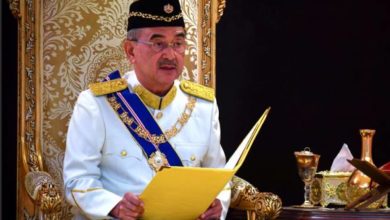The government plans to integrate renewable energy (RE) from the palm oil industry into the national grid through collaboration with Tenaga Nasional Bhd (TNB) and the Energy Commission (SC).

Plantation and Commodities Minister Datuk Seri Johari Abdul Ghani said the initiative supports Malaysia’s goal of achieving net-zero carbon emissions by 2050 and reducing reliance on coal-fired power plants.
As the world’s second-largest palm oil producer, Malaysia generates substantial palm oil waste, including empty fruit bunches and palm kernel shells, which hold great potential as biomass energy sources, he noted.
Beyond accelerating the country’s clean energy transition, Johari said RE also presents significant opportunities for foreign direct investment (FDI), positioning Malaysia as an attractive hub for investors in sustainable and low-carbon energy solutions.

Johari added that the initiative demonstrates Malaysia’s ability to harness RE without requiring significant government or TNB expenditure.
He noted that a key step is for TNB and EC to identify palm oil mills ready for grid integration.
With the necessary infrastructure in place, surplus energy could be supplied back to the grid, optimising the use of biomass resources.
“For example, if a mill produces 7MW but only uses 3MW, the remaining 4MW can be fed into the national grid.
“However, at present, most palm oil mills do not do this because there is no grid connection, causing the energy to go to waste,” he said.
Johari also said the government is increasing private sector interest in investing in energy from waste, with companies willing to finance energy infrastructure development within the palm oil sector.
He said investors have already approached the government. They are not only interested in the palm oil business but are even more focused on the energy sector related to palm waste.
He added that they see strong investment potential in converting palm biomass into electricity.
Commenting further, Johari said sustainability is no longer just a corporate checkbox but an existential business strategy and plantation companies must be no exception.
He noted that the most progressive firms already leverage environmental, social and governance (ESG) strategies to drive profitability.
Thus, zero-deforestation commitments, sustainable production, and ethical labor practices must be embedded in the core operations of plantation companies.
“Corporate social responsibility must evolve beyond PR-friendly charity efforts into meaningful partnerships with local communities.
“Those who lag in sustainability will not only lose investor confidence but also risk regulatory crackdowns and exclusion from global markets.
“Companies must stop pretending that outdated practices can continue unchecked. As global standards evolve, those who refuse to adapt will be left behind,” he noted.
Johari stressed that a future-ready plantation industry will not emerge through minor tweaks or half-measures.
It requires a bold embrace of innovation, agility, and relentless improvement.
“Fear of change is no longer an excuse and the path forward is clear. Plantation companies in Malaysia must take bold, decisive steps to retain industry leadership.
“This is not a time for comfortable management; it is a time for committed and focused leadership,” he said. – BUSSINESS TIMES ONLINE




